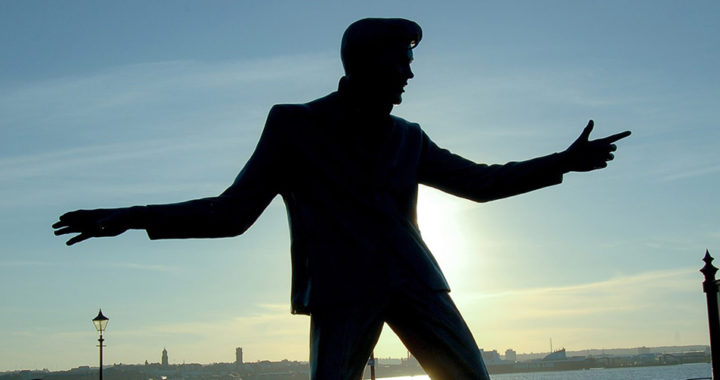He was more than just the King of Rock and Roll. Elvis Presley popularized polio vaccination in the United States during the 1950s. Note that public health officials and healthcare workers had a hard time convincing the public about the importance of immunization. The greater American public was essentially indifferent towards the importance of vaccination. Some organizations rallied and lobbied against polio vaccination or any forms of immunization.
The American Polio Epidemic and the Salk Polio Vaccine
Poliomyelitis or polio is an infectious disease caused by the poliovirus. It first appeared in the United States around 1900. A regular recurrence of the polio epidemic ravaged North American cities from the 1930s to 1950s with thousands of cases and thousands of death.
The disease does not usually lead to death. Common symptoms include fever, fatigue, headache, stiffness of the neck, and pain in the limbs. Some cases lead to permanent paralysis. Rarer cases result in death.
Fear of polio became widespread in the U.S. The book “Polio: An American Story” by historian David M. Oshinsky mentioned that local governments would shut down public places and lockdown their cities during instances of polio outbreaks.
Some companies used the fear of polio as a tool to sell disinfectants and even healthcare insurance. Polio became an American reality, and the people increasingly became increasingly obsessed with personal hygiene and cleanliness.
But none of those lockdowns or disinfections worked. Polio continued to infect and affect Americans. Children were hit the hardest. However, as part of the counterarguments, Oshinsky reiterated that the disease was never the raging epidemic portrayed by the media. He argued that children were more likely to die from road accidents and cancer.
Polio was an American reality nonetheless. The National Foundation for Infantile Paralysis poured considerable efforts to make polio a fearsome disease in their hopes to acquire funding for charity and to sponsor medical research. In 1948, the foundation asked medical researcher and virologist Jonas Salk to join their growing network of polio researchers.
Nevertheless, banking on acquired funding for supplies and research, several animal and human trials, and publicity, Salk finally announced the completion of polio vaccine development in 1955. Physician and epidemiologist Thomas Francis Jr. declared the vaccine safe and effective.
How Elvis Presley Popularized Polio Vaccination
The discovery of the Salk polio vaccine was a significant milestone in polio research. It provided a solution to eradicate the epidemic through immunization. But the American public was not readily receptive to the concept of vaccination. The book “State of Immunity: The Politics of Vaccination in Twentieth-Century America” by James Colgrove mentioned that public health officials and the American government had a hard time convincing the people to receive the polio vaccine.
Several organizations had also opposed immunization and other emerging healthcare initiatives. For example, the Citizens Medical Reference Bureau rolled out different communication strategies to discredit the Salk polio vaccine. They also used the fact that Salk was a Jew, and the use of his vaccine was an anti-Christian effort aimed at contaminating the bodies of children.
Health officials lacked the necessary resources to counter arguments against polio vaccination. Nonetheless, the National Foundation for Infantile Paralysis specialized in public relations. The foundation had workers across the U.S. In 1956, they launched communication strategies that revolved around television, radio, and print publicity to promote polio vaccination.
One of the strategies employed by the foundation, together with the New York City Health Department, was to use celebrities. In October 1956, the two institutions launched a publicity stunt with the help of the young Elvis Presley.
Elvis Presley was in New York to tape a guest appearance on the Ed Sullivan Show. The foundation thought that tapping the famous American musician would help reach younger people. They also tapped members of Elvis fans clubs around the U.S. to help promote the publicity stunt.
On 28 October 1956, Elvis Presley got a polio vaccination on national television. Other press people covered the event, and newspapers across the U.S. published the resulting photographs.
The stunt pulled by the National Foundation for Infantile Paralysis and New York City Health Department was also in coordination with the Teens Against Polio—another allied advocacy organization that promoted polio and vaccine awareness.
Influence and Impact of Elvis in Vaccine Promotion
The role of Elvis Presley in popularizing polio vaccination in the U.S. centered on advocacy. He used his celebrity status and popularity to promote the importance of the Sulk vaccine and provide the public with assurance about its safety. Note that the publicity stunt he pulled did not only appear on national TV but was also immortalized through print media coverage.
Using him as a celebrity advocate also coincided with the growing social and political involvement of young Americans. Take note that the 1950s marked the emergence of the American teen culture. The youngsters rallied behind Elvis to further the cause by spreading awareness and promoting public confidence.
The superstar continued to work for the foundation. Polio vaccination became one of his advocacies. He recorded different advocacy messages that urged the public, especially the younger population, to get vaccinated. He also endorsed events aimed at raising funding and spreading awareness through public demonstrations.
University of Cambridge historian Dr. Stephen Mawdlsey mentioned that Elvis Presley and the teenagers who rallied behind the Salk polio vaccine might be the first, largest, and most successful example of teen health activism.
